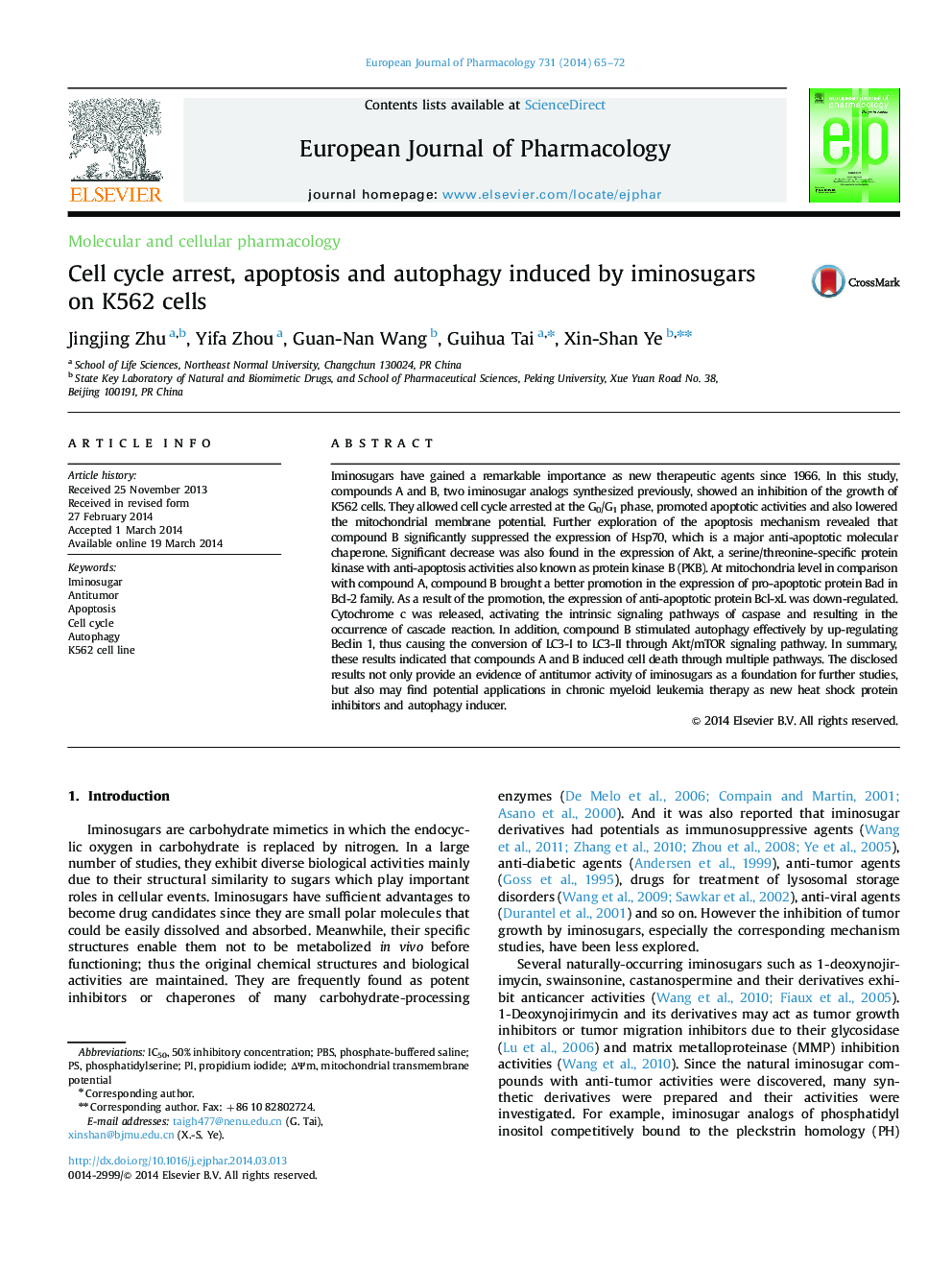| Article ID | Journal | Published Year | Pages | File Type |
|---|---|---|---|---|
| 2531779 | European Journal of Pharmacology | 2014 | 8 Pages |
Iminosugars have gained a remarkable importance as new therapeutic agents since 1966. In this study, compounds A and B, two iminosugar analogs synthesized previously, showed an inhibition of the growth of K562 cells. They allowed cell cycle arrested at the G0/G1 phase, promoted apoptotic activities and also lowered the mitochondrial membrane potential. Further exploration of the apoptosis mechanism revealed that compound B significantly suppressed the expression of Hsp70, which is a major anti-apoptotic molecular chaperone. Significant decrease was also found in the expression of Akt, a serine/threonine-specific protein kinase with anti-apoptosis activities also known as protein kinase B (PKB). At mitochondria level in comparison with compound A, compound B brought a better promotion in the expression of pro-apoptotic protein Bad in Bcl-2 family. As a result of the promotion, the expression of anti-apoptotic protein Bcl-xL was down-regulated. Cytochrome c was released, activating the intrinsic signaling pathways of caspase and resulting in the occurrence of cascade reaction. In addition, compound B stimulated autophagy effectively by up-regulating Beclin 1, thus causing the conversion of LC3-I to LC3-II through Akt/mTOR signaling pathway. In summary, these results indicated that compounds A and B induced cell death through multiple pathways. The disclosed results not only provide an evidence of antitumor activity of iminosugars as a foundation for further studies, but also may find potential applications in chronic myeloid leukemia therapy as new heat shock protein inhibitors and autophagy inducer.
